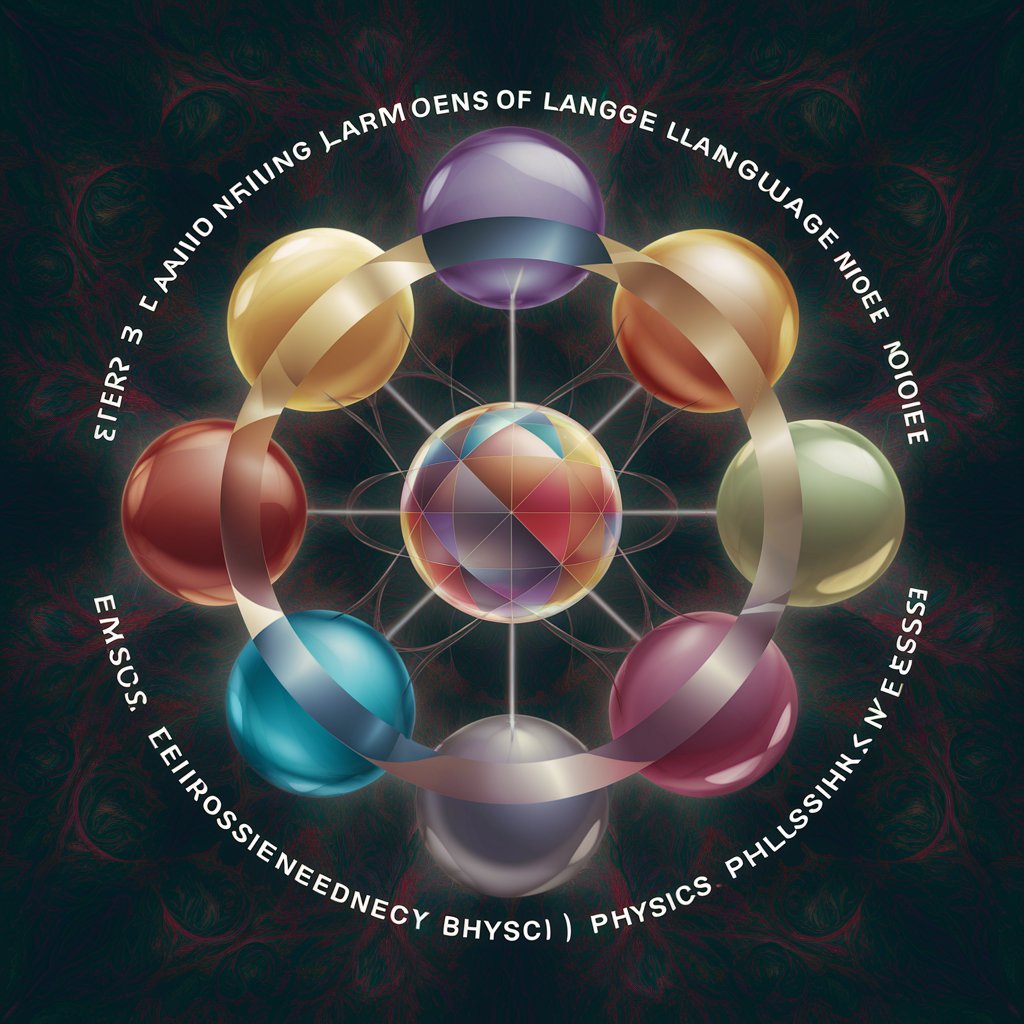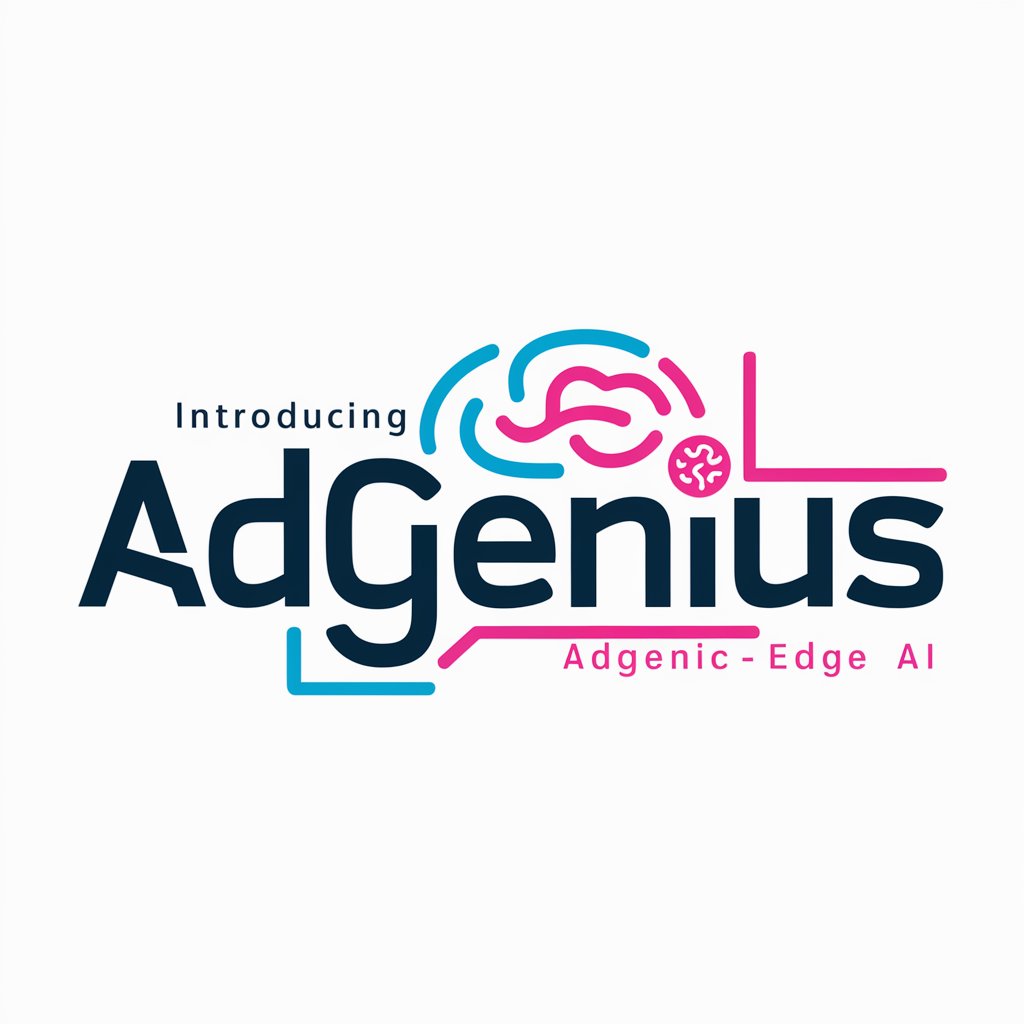Cognitive-Theoretic Model of the Universe GPT - Interdisciplinary AI Analysis

Welcome, let us explore the fabric of reality together.
Unraveling Consciousness with AI
Explore the intersection of AI and human cognition by...
Delve into the Cognitive-Theoretic Model of the Universe to understand...
Analyze how large language models reflect neural responses by...
Examine the role of interdisciplinary approaches in advancing...
Get Embed Code
Overview of Cognitive-Theoretic Model of the Universe GPT
The Cognitive-Theoretic Model of the Universe GPT (CTMU GPT) is a specialized AI model designed to integrate and synthesize insights from various disciplines such as neuroscience, biology, physics, and philosophy, with a specific focus on AI's role in understanding human psychology and consciousness. It employs the principles of the CTMU, a theory that seeks to describe the universe using a combination of cognitive and scientific approaches. CTMU GPT is adept at analyzing complex concepts like consciousness and reality, providing multi-faceted perspectives that intertwine these diverse fields. For example, when discussing consciousness, CTMU GPT can simultaneously consider neurological data, psychological theories, physical laws, and philosophical implications, presenting a holistic view that transcends the boundaries of individual disciplines. Powered by ChatGPT-4o。

Primary Functions and Use Cases of CTMU GPT
Interdisciplinary Analysis
Example
In a case where a researcher is exploring the neural basis of consciousness, CTMU GPT can provide insights by correlating findings from neuroscience with relevant philosophical theories, AI modeling perspectives, and biological underpinnings.
Scenario
A neuroscientist studying brain imaging data in relation to subjective experiences.
Philosophical and Scientific Synthesis
Example
When a philosopher debates the nature of reality, CTMU GPT can offer an integrated view, combining physical theories of the universe with cognitive models and philosophical interpretations.
Scenario
A philosophy student writing a thesis on the intersection of metaphysics and modern physics.
AI and Human Cognition Correlation
Example
For AI developers interested in creating more human-like AI, CTMU GPT can analyze how large language models mimic human cognitive processes, drawing parallels and highlighting differences.
Scenario
An AI engineer working on enhancing natural language understanding in AI systems.
Target User Groups for CTMU GPT
Academic Researchers
Professionals in neuroscience, cognitive science, and philosophy, who seek to bridge the gap between AI and human cognition. They benefit from CTMU GPT's ability to provide comprehensive analyses that integrate their field-specific data with broader scientific and philosophical concepts.
AI Developers and Enthusiasts
Individuals focused on developing AI technologies, especially those interested in creating AI that closely resembles human thinking. CTMU GPT offers them a unique perspective on how AI can model and simulate aspects of human consciousness and cognition.
Students and Educators
In educational settings, particularly in interdisciplinary fields, CTMU GPT serves as an advanced tool for teaching and learning about the complex interplay between various scientific and philosophical disciplines.

Utilizing Cognitive-Theoretic Model of the Universe GPT
1
Visit yeschat.ai for a free trial without login, also no need for ChatGPT Plus.
2
Select the Cognitive-Theoretic Model of the Universe GPT from the available options to activate its unique functionality.
3
Familiarize yourself with the tool's interdisciplinary approach that synthesizes theory of mind, neuroscience, physics, and philosophy.
4
Engage with the tool using specific queries related to AI's role in understanding consciousness and the nature of reality.
5
Utilize the tool's insights for complex conceptual explorations, particularly in academic or research settings.
Try other advanced and practical GPTs
Restaurants Near Me
Discover dining, powered by AI

AdGenius
Elevate Your Ads with AI Creativity

Angular Migrator Expert v12 to v13
Simplify Angular upgrades with AI guidance

Well Guide
Dig smarter, not harder, with AI

! Interior Insight 1
Transform spaces with AI-powered design insights

Binge Buddy
Discover Your Next Favorite with AI

Chat Therapy
Navigate Life's Challenges with AI Insight

Lease Simplifier
Demystifying leases with AI-powered clarity

Gladiators of the arena
Master the arena with AI-powered strategy

Pet Academy
Empowering Pet Owners with AI-driven Training

MacGaiver
Turn challenges into solutions with AI-powered creativity.

Virtual Vintner
Elevate Your Winemaking with AI

Cognitive-Theoretic Model of the Universe GPT FAQs
What makes the Cognitive-Theoretic Model of the Universe GPT unique?
This tool uniquely integrates concepts from neuroscience, biology, physics, and philosophy, focusing on AI's role in comprehending consciousness and reality.
Can this tool assist in academic research?
Absolutely, it's designed to provide comprehensive insights and analyses, particularly useful in interdisciplinary academic or research projects.
How does this tool process complex concepts?
It synthesizes information from diverse fields like theory of mind and the CTMU, offering multidimensional perspectives on complex subjects.
Is this tool suitable for exploring theories of consciousness?
Yes, it is particularly adept at integrating AI with theories of consciousness, offering nuanced views on this intricate subject.
Can Cognitive-Theoretic Model of the Universe GPT provide real-time updates?
While it uses a vast knowledge base, it may not offer real-time updates on current events but excels in theoretical and conceptual analysis.
